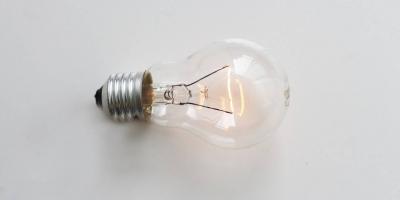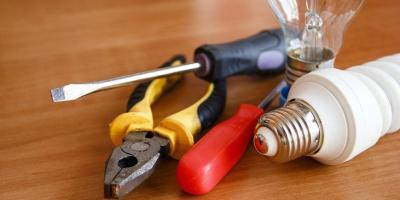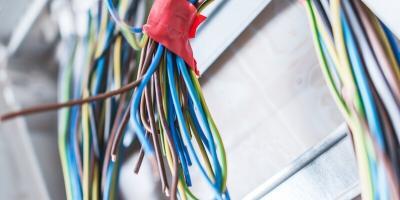Every year, countless household fires occur in Australia, mostly due to improper and poor electrical wiring.
Despite its importance, many families take routine electrical maintenance for granted and refrain from calling a professional electrician to regularly diagnose and maintain their electrical system.
Calling a professional electrician to check your electrical wiring will help guarantee your safety from fire hazards and electrical faults. Besides, it helps protect your most expensive and valuable financial asset — your property.
That said, this post will help you into the basics of checking for bad electrical wiring and the precautions you should take before performing the activity.
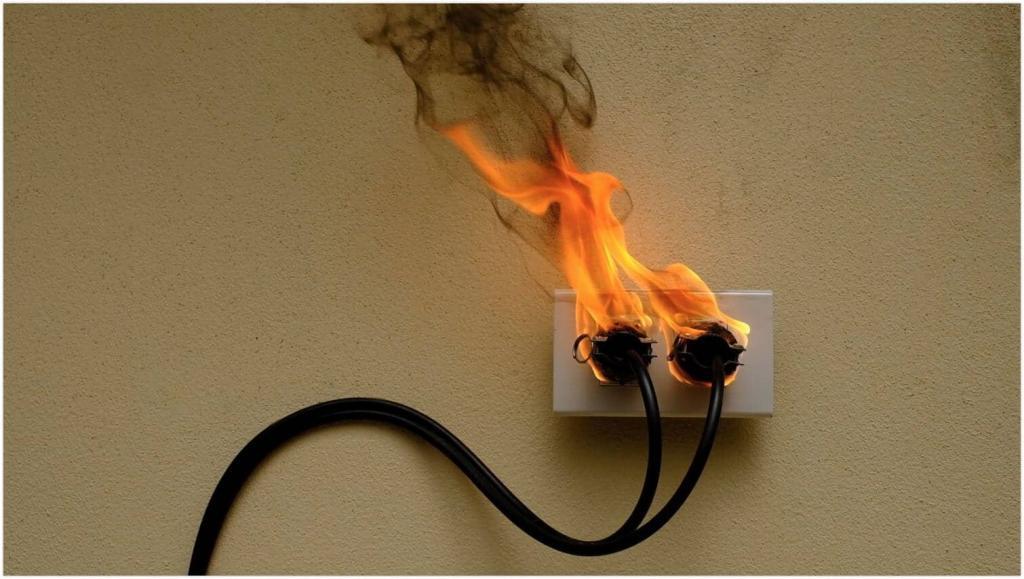
Risks of Faulty Electrical Wiring
Faulty electrical wiring and improper electrical installation expose you to the following risks:
- Appliance failure due to overloading/shorting
- Power cuts and nuisance switchboard tripping
- Electrocution/electric shock from exposed contact leads
- Short circuit from stripped wires and improper connections
- An electrical fire caused by faulty plugs, melted sockets, and wires
Dealing with power points and electrical sockets requires an experienced electrician to get the job done. So if you think your sockets and electrical fittings have issues, don’t hesitate to call your nearest local electrician.
What Precautions Can You Take For Electrical Safety?
To establish a safe working environment when checking for bad electrical wiring, you must strictly follow these basic safety rules throughout the task. Remember to proceed with caution and avoid cutting corners to prevent unexpected electric shock or similar accidents.
Inspect Your Electrical Installation
- Refrain from bypassing a blown fuse with copper and metal wire. Always replace a damaged fuse with a similar one with an identical current load.
- Make sure to connect a single major appliance to one power point only. Octopus wiring can heat up the wires and eventually melt the plastic holding the metal leads in place.
- Always use compatible and reliable residual current switches as using lower-rated models may result in nuisance tripping. Using higher-rated switches might give you a higher current ceiling but may end up overloading your devices as it won’t cut off the power in time.
Review Your Power Plugs and Sockets
- Seek professional help when removing and replacing faulty sockets. Loose screws and contact leads may touch during disassembly, shorting the circuit and catching fire.
- Use only high-rated power strips with safety switches for high-demand appliances. Doing so minimises nuisance tripping and allows safety switches to sustain high currents.
Look for Signs of Burnt Wires
- Copper wires with smaller diameters tend to warm up and overload easier than larger wires, so avoid using cheap and small wires for your electrical appliances.
- Inspect exposed wires for signs of discolouration and melting. If you found wires with burnt insulation and worn-out sheathing, it’s a good sign that the section is a faulty hotspot.
- For concealed wiring, have a professional technician inspect your wires. Some electrical faults can be found without having to remove hidden wires.
Inspect Your Electrical Appliances
- Make sure to earth all electrical appliances properly. Poor grounding might cause the leaking current to flow in metal surfaces in your appliances.
- Immediately call an electrician if you feel a slight electric shock when touching the appliance/plug.
Be Cautious Around Electricity
- Avoid touching appliances with wet hands or feet. Keep in mind that water is a good electrical conductor, so the next time you run the laundry or use the dishwasher, always keep your hands dry.
- Refrain from installing electrical appliances near your shower or bathroom and avoid pressing the light switches with soaking wet fingers.
Check Electrical Fittings
- You can check if any exposed fittings show signs of overloading. Otherwise, we highly recommend seeking professional help immediately.
If you have some malfunctioning appliances and a spiking electricity bill, avoid taking any risks and immediately contact a licensed electrician today. More often than not, neglecting faulty wiring warning signs can lead to severe and expensive damages.
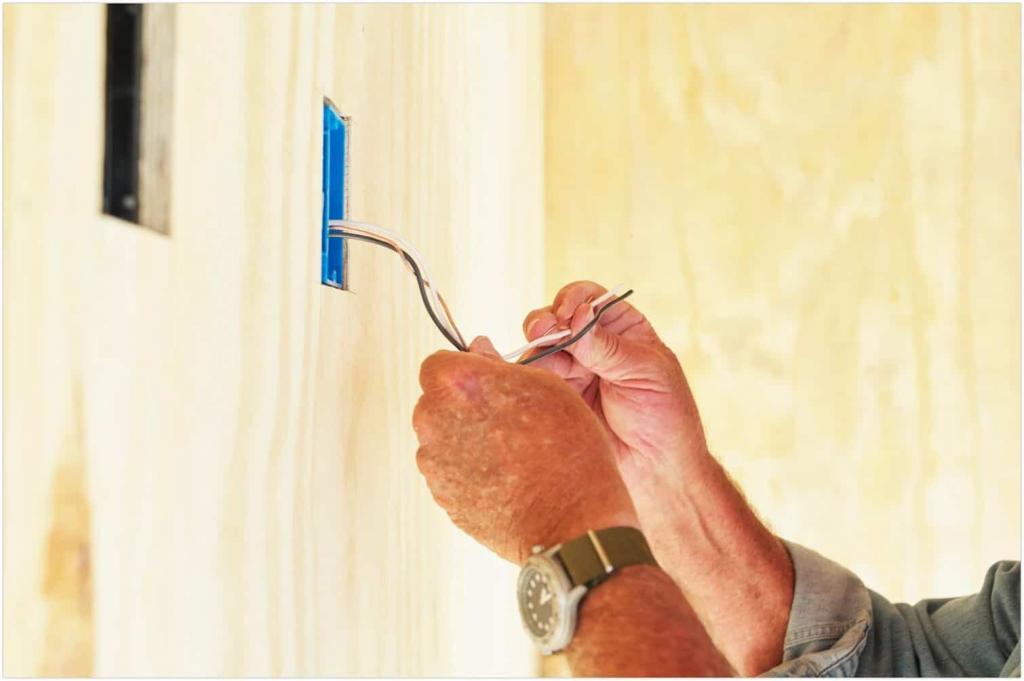
Danger Signs of Defective Electrical Wiring
Poorly maintained and damaged electrical wiring pose serious risks for your household. Statistics show that electrical failure is the cause of roughly 500 civilian deaths and 1,300 civilian injuries every year, notwithstanding the estimated $1.4 billion loss from property damage annually.
That said, you must maintain a high alert and keep an eye on visible danger signs of defective and faulty electrical wiring. Below, we’ll break down the most common warning signs of electrical fault.
Keep in mind that the best you can do is inspect your electrical system. If you found any fault and problems in your wiring, call our electricians at Gordon Powers and avoid any electrical repairs by yourself.
Circuit Breaker Nuisance Tripping
A household circuit breaker is designed to trip and break the electrical circuit in short circuits and electrical overload. Usually, you only need to flip the switch back on to restore your electricity.
However, suppose you experience nuisance breaker tripping. In that case, you might have a faulty wire or socket waiting to short or start a fire. If not, consider evaluating whether or not you have a few too many high-energy demand appliances and electronics running simultaneously.
Buzzing and Dimming Lamps/Lights
The absence of nuisance tripping doesn’t imply an entirely safe electrical system, as other faults can still occur without triggering your circuit breaker. For instance, buzzing, blinking, and dimming fluorescent or LED lights can indicate damaged or deteriorated wiring.
If your light bulbs buzz, flicker, or dim whenever you plug in your A/C and other appliances, then it’s a surefire sign that your electrical system needs an appropriate upgrade.
Frayed and Stripped Electrical Wires
Damaged electrical wiring is a potentially dangerous yet increasingly common fault/issue among many households. From pests and rodents to poor handiwork and electrical installation, frayed power cables are potentially dangerous as they expose your family and property to shock and fire hazards.
Suppose you suspect or notice signs of stripped electrical wires of any kind. In that case, you should promptly call a licensed electrician to repair and replace the damaged wiring. Besides, they can also help isolate and deal with any ancillary damage caused by the electrical fault.
Electrical Fitting Discolouration, Scorched Walls, and Smoking
Always keep a keen eye on any power outlets and junction boxes in your electrical system. Aside from your electrical wires, it’s crucial to monitor electrical junction boxes, power outlets, and switchboards for signs of discolouration, scorching, and for worse cases, smoke.
Discoloured fittings and scorch marks on walls and outlets are clear signs that electrical wires are heating up excessively. Not only does this damage your electrical system, but it also increases the potential to overload, short, and start a fire if left neglected.
Warm and Vibrating Power Outlets
More often than not, plugging high-rated electrical appliances on lower-rated outlets can cause the sockets to heat up and overload. Aside from that, poorly installed wall fittings can also cause loose screws and metal contacts to vibrate.
As loose components and leads rattle inside the electrical fitting, they could bridge between two contacts and potentially short the circuit. In case you notice any of these two manifesting on your power outlets, have a Level 2 electrician at Gordon Powers replace loose fittings and wiring.
Burning Smell and Odd Odours Near Outlets
At this point, you should be using your sense of sight and touch to sense wiring discolourations and loose fittings. Aside from those two, you can also use your nose to determine any electrical fault, albeit risky.
Try to sniff around potential electrical fault sources and smell for any odd or smoky odour near junction boxes and outlets. Burning odours are highly dangerous indicators that electrical fire damage has already started. In that case, immediately turn off your main power breaker and move to a safer place before contacting professional electricians and emergency services.
The common causes of all these warning signs are:
- Typically outdated wiring.
- Deterioration from physical stress or fraying.
- Improper and unsafe installation by poorly trained electricians.
Moreover, relying on cheap and substandard electrical services might leave you in a life-threatening danger that’s only a matter of when. If you’re also intending to sell your property in the future, you might stumble upon property inspection when the officer finds any non-code compliant electrical installations and safety hazards.
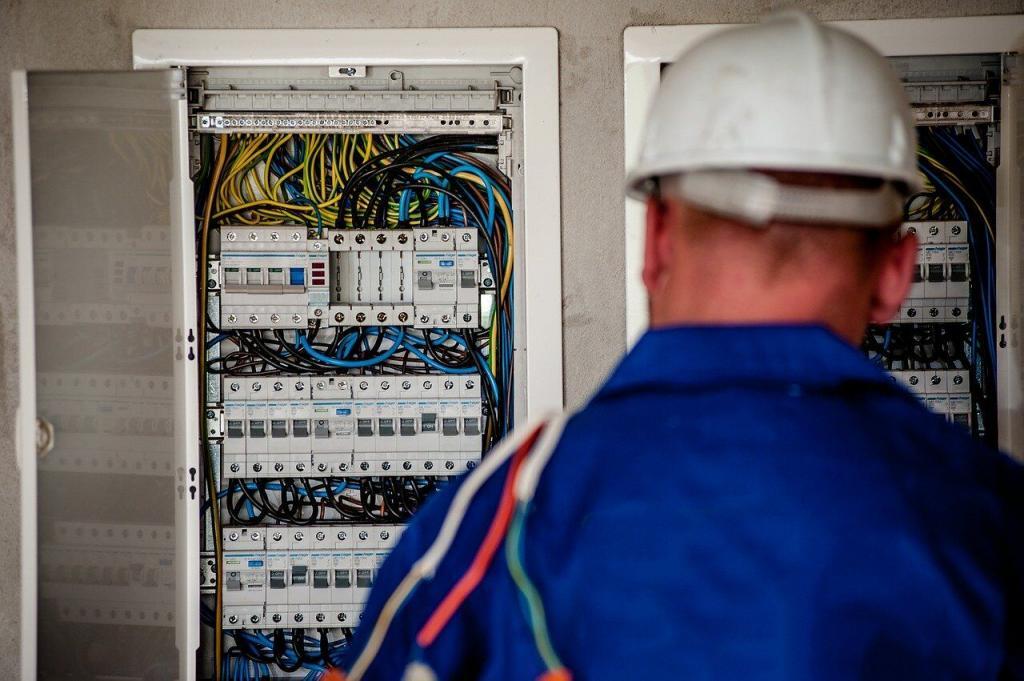
How Professionals Check and Repair Electrical Wirings
While immediately calling a licensed electrician is the smartest option, you can always follow the above guide to perform a basic electrical wiring checkup before deciding the best approach.
You should never rely on DIY knowledge in repairing and replacing electrical fittings. However, here are some tips from experts at Gordon Powers that you can follow to help you notice any faults. These should also give you a head start if you need to call in a professional to diagnose and repair your electrical system.
Check for Irregularities in Circuit Breakers
Your electrical system’s first line of defence against faults is your fuse boxes and circuit breakers. Circuit breakers protect the electrical circuits by tripping off in the event of overloading and shorting, so you must regularly inspect them.
Commonly, you can find circuit breakers in your garage or outside near your power inlet box. If you can, try opening the box and look for irregularities like no voltage reading or loose contacts.
As soon as you find any oddities in your circuit breaker, promptly call a Level 2 electrician. Keep in mind that the main circuit breaker connects directly to municipal power transformers. Tampering with them without proper gear and training might lead to severe injuries or death.
Regular Wiring Inspection
Professionals understand the fact that we can prevent electrical fires through maintenance checks and fault detection. That said, we highly recommend having your wires and fittings checked every two to three years, with replacement done accordingly to ensure no damage will grow and spread over time.
Furthermore, Level 2 accredited service providers have adequate training and skills to execute a comprehensive and thorough electrical repair and inspection. By relying on a licensed and trusted electrician, you can enjoy peace of mind without necessarily breaking the bank.
Signs of Overheating and Meltdown
Professional electricians isolate electrical faults by first finding obvious signs of wiring meltdown and overheating. In the event of overheating, it’s best to have an electrician inspect your wiring system as they should know how to immediately stop the fire and shut down your power supply.
Otherwise, light materials could catch fire and spread throughout your house, resulting in expensive damage to property and injuries.
Bespoke and Regular Inspection
Keep in mind that just like house designs, every property’s electrical systems will be just as unique. Some households may require a more frequent electrical inspection than others, so it’s best to partner with electrical service providers that offer a bespoke and customised service.
Another factor in determining the frequency of routine inspection is the length of service. That’s because older wiring and households pose greater risks of electrical-related risks. Modern electrical systems have multiple residual current devices for every powerpoint, thereby further minimising faults and electrical problems.
But even with a reliable system, it’s not safe to assume that your systems are safe unless you have an electrician inspect them at least once in three to five years.
In general, if you’re planning to install new electrical appliances and upgrade to newer and more demanding devices, you should have a professional inspect your household’s electrical capacity. The more TVs, sound systems, ACs, and computers you add at home, the more vigilant you should become.
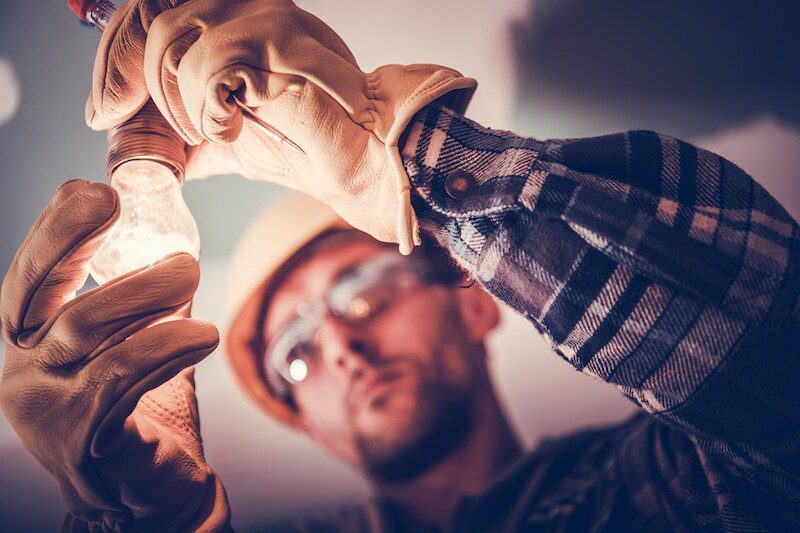
Electrical Safety as the First Priority
At this point, you should have a good idea about the threats that electrical hazards can pose to your property and family. Besides professional electricians, homeowners should also learn and practice electrical safety as a priority, especially when dealing with electrical appliances and equipment.
Here are some of the most prevalent electrical equipment that homeowners should be familiar with how to use safely and properly:
- Power strips/extension leads — Only utilise extension cords for temporary use and always keep them in hidden and well-sealed areas to avoid rodents from nibbling the cable insulation. Always keep power strips away from water.
- Electrical appliances/devices — Always inspect appliance power plugs and wires before plugging them to ensure that there’s no damage and they’re safe to use. To conserve energy and prevent electrical accidents, always turn off appliances and devices when not in use. Don’t forget to dispose of and replace damaged appliances.
- Power points — Make sure to turn off unused power points and only turn them on AFTER plugging in your appliances to avoid arcs and sparks. When power points exhibit electrical faults such as visible contacts and worn-out wires, avoid using them.
- Power/switchboards — Place your switchboards in well-ventilated places, and don’t forget to turn individual switches off when not in use. Make sure to have one switch dedicated for high-demand appliances like ACs, refrigerators, and washing machines.
Another critical step in practicing electrical safety is to avoid using water to extinguish an electrical fire in case of electrical emergencies and fire. The NSW Fire and Rescue Department classifies Electrical Fire as Class E fire. It can only be distinguished using dry chemical powder designed to combat energised flame.
Another expert piece of advice is to dispose of old appliances and avoid using them, especially if they underwent several repairs. Finally, make it a habit of switching off the power when not in use and before inspecting other electrical systems.
Keep in mind that performing an electrical system inspection yourself can be a bad idea, especially if you don’t know what you’re doing. Always put your family and property’s safety first and call a licensed electrician to take care of your electrical systems repair and inspection.
Final Thoughts
Living in a home with underlying electrical faults and safety hazards can be outright dangerous, especially if you have a false sense of security if you can’t find electrical faults. To make sure your family and valuables are safe from electrical risks and accidents, seek help from licensed and accredited electricians in Gordon Powers Sydney.
Additionally, you can prevent the most common electrical faults such as frayed insulation and poor fitting installation by having a professional replace and repair them accordingly. Using high-rated equipment and appliances with worn-out cables and fittings might also trigger electrical accidents, which can be avoided with prompt electrical repairs.
Even if all appliances seem to be operating smoothly, you cannot determine if electrical faults are developing under the plain sight. As soon as you notice any subtle sign of an electrical fault, promptly call the reliable Level 2 electricians in Sydney.
About Gordon Powers
Gordon Powers have an in-house team of accredited electricians that serve across Sydney — from residential properties to commercial spaces. We take it as our vision to build long-lasting relationships with our customers by providing bespoke and time-tested electrical services and repairs. Gordon Powers strive to deliver 100% satisfaction to our clients.
Our certified Level 2 electricians have adequate training and experience in inspecting and isolating any electrical fault we can find inside and outside your home. We have the tools and equipment to safely and efficiently cut off any faulty hotspots and prevent short circuits and overload throughout the repairs service.
Call us at (02) 9199 7480 for an appointment or inquire with us via our contact page.








